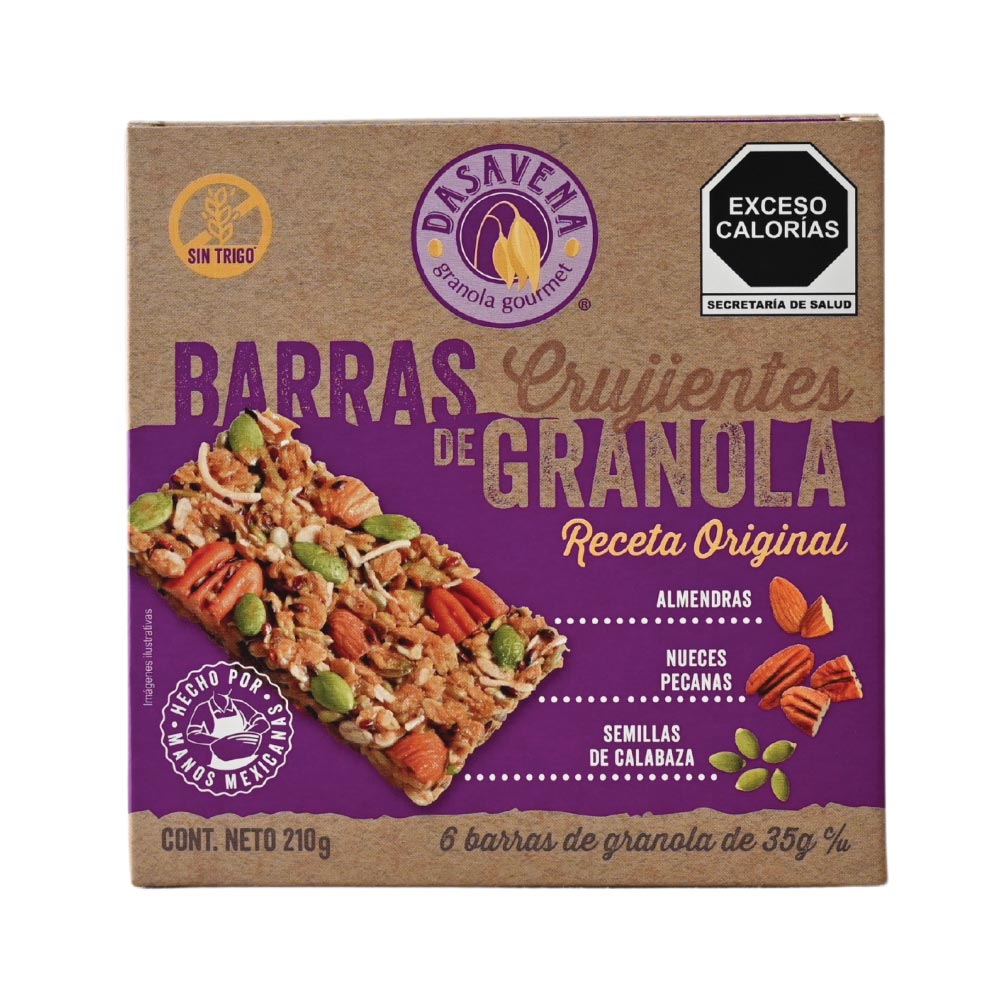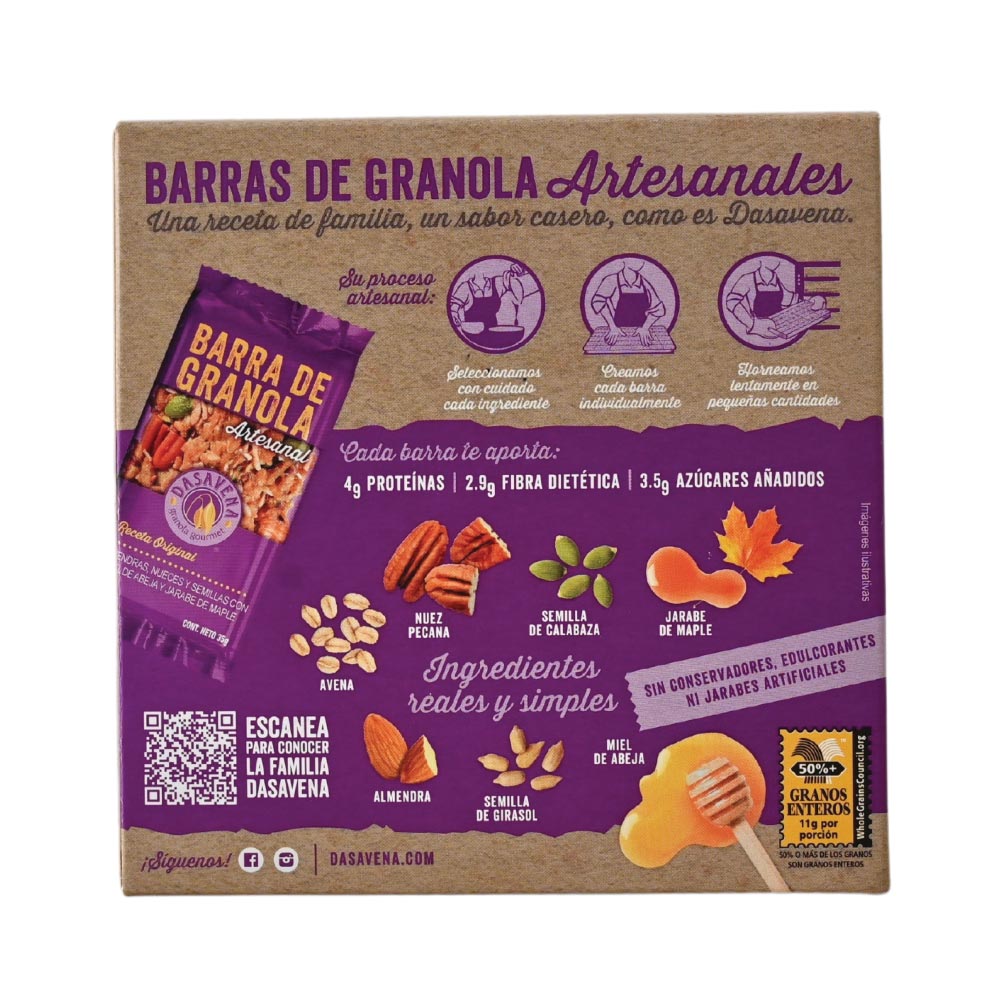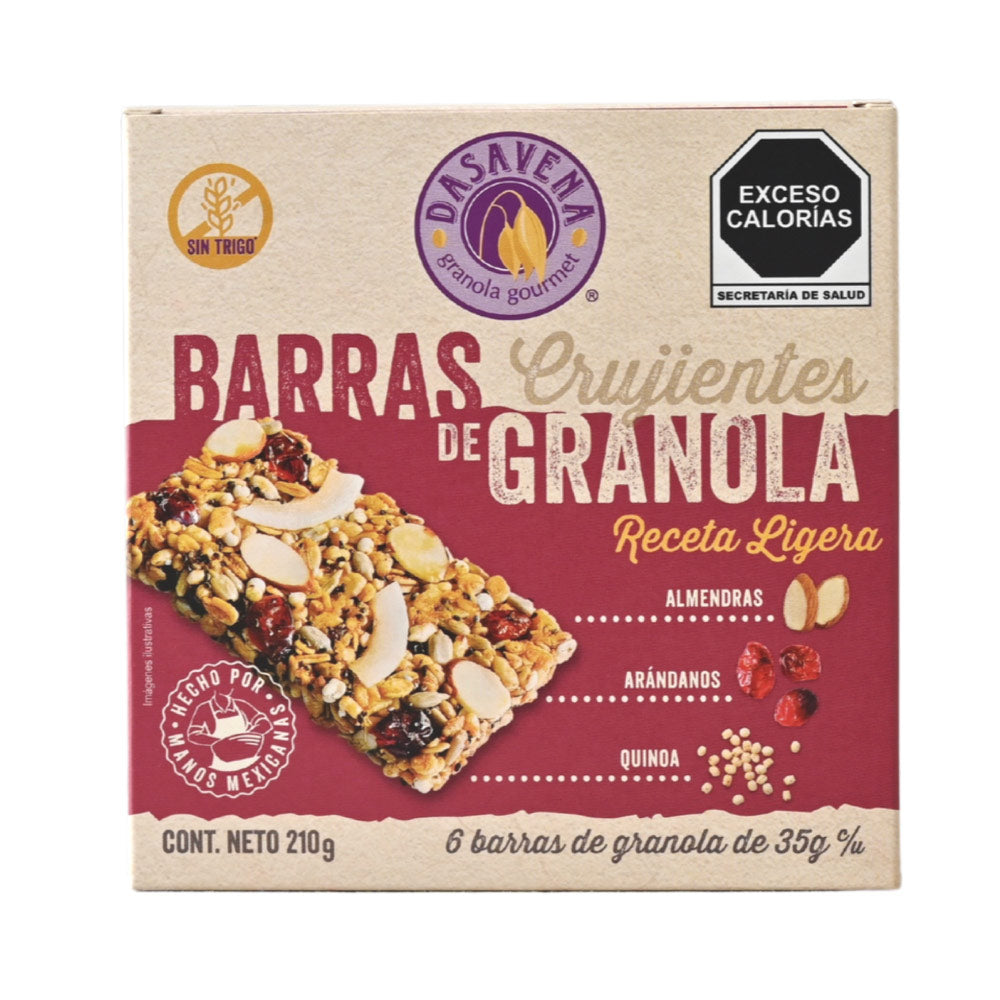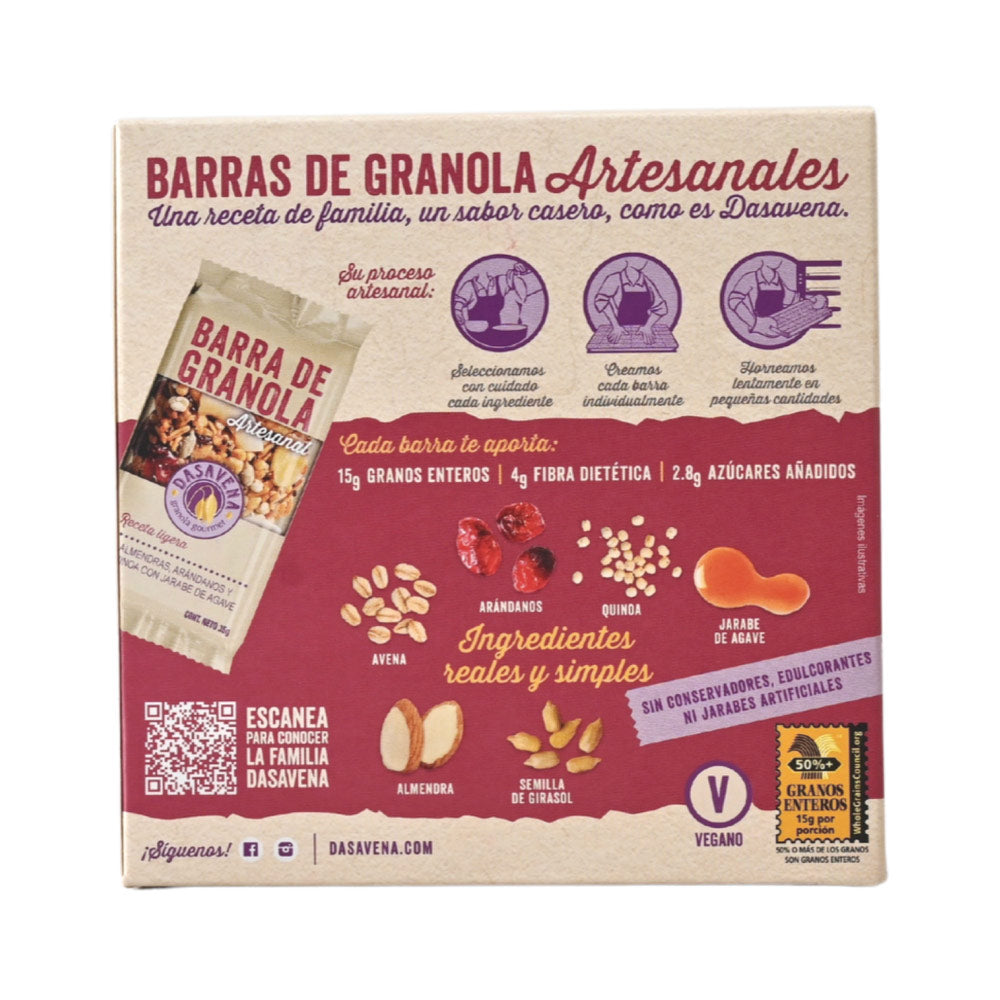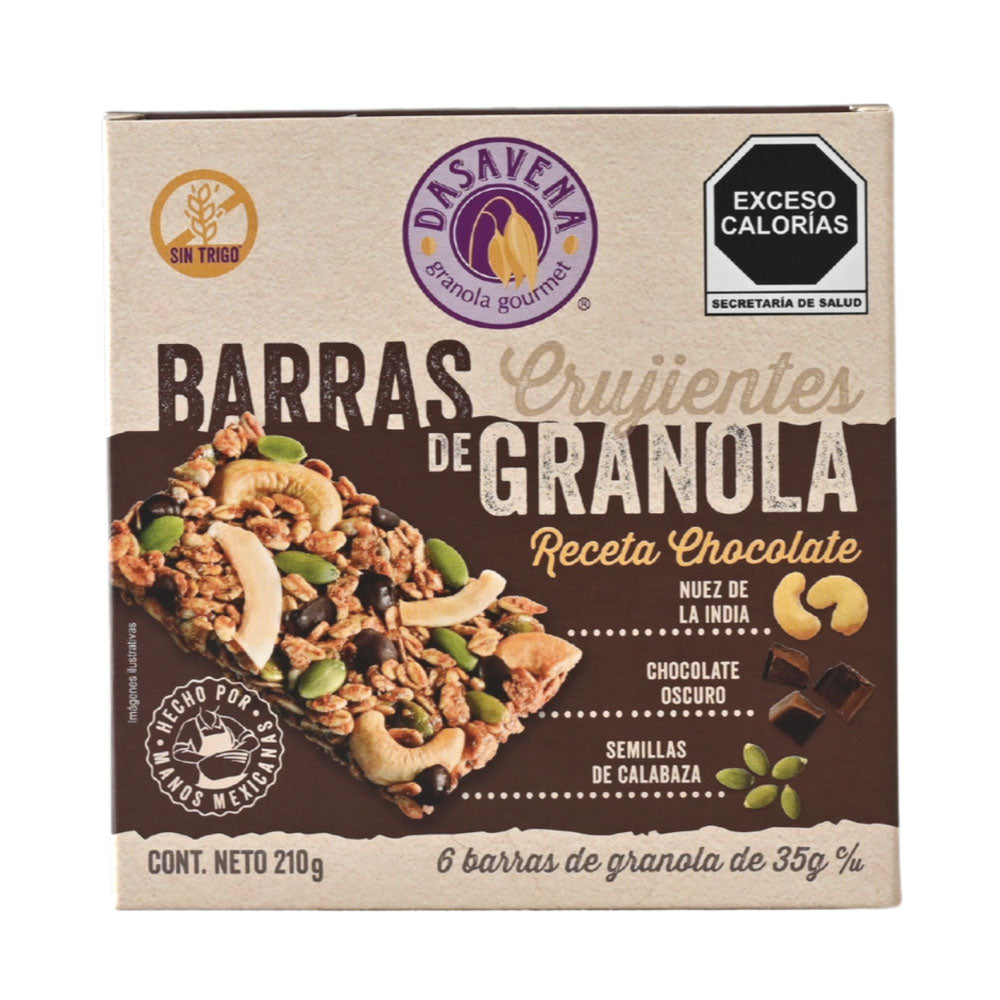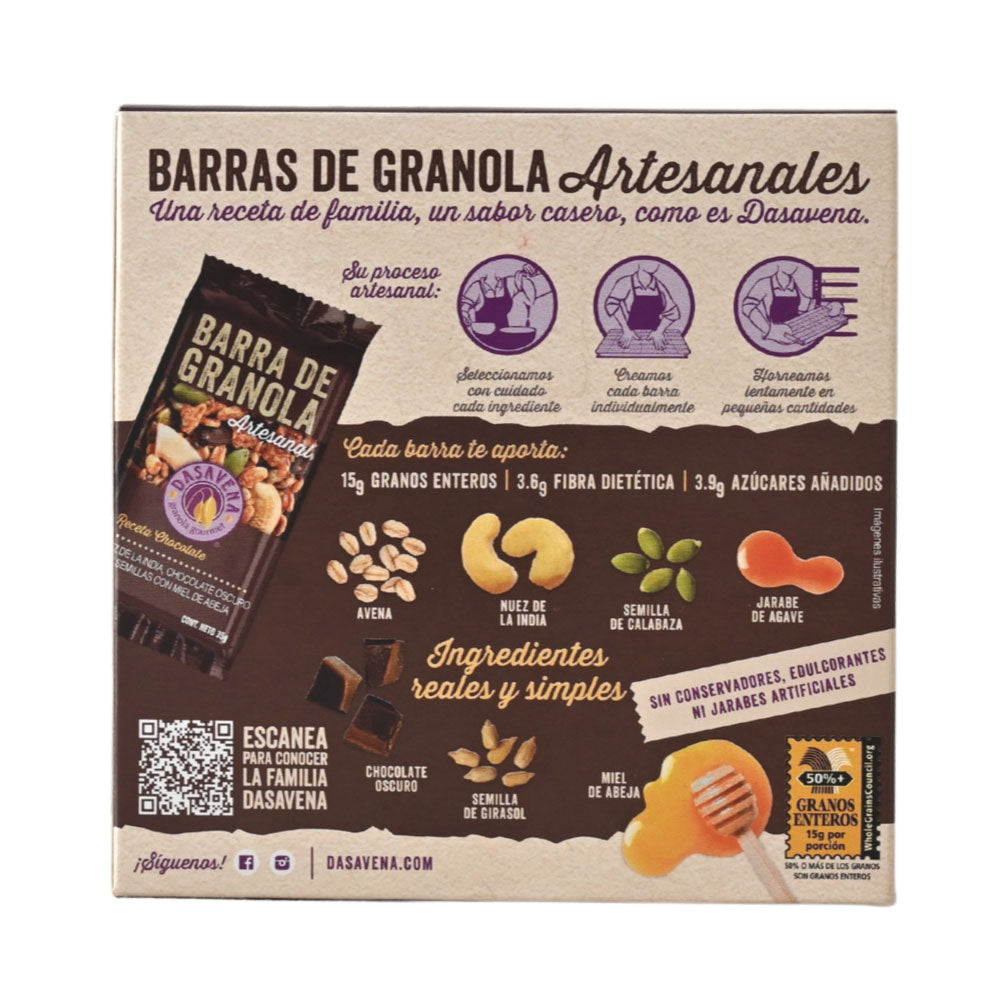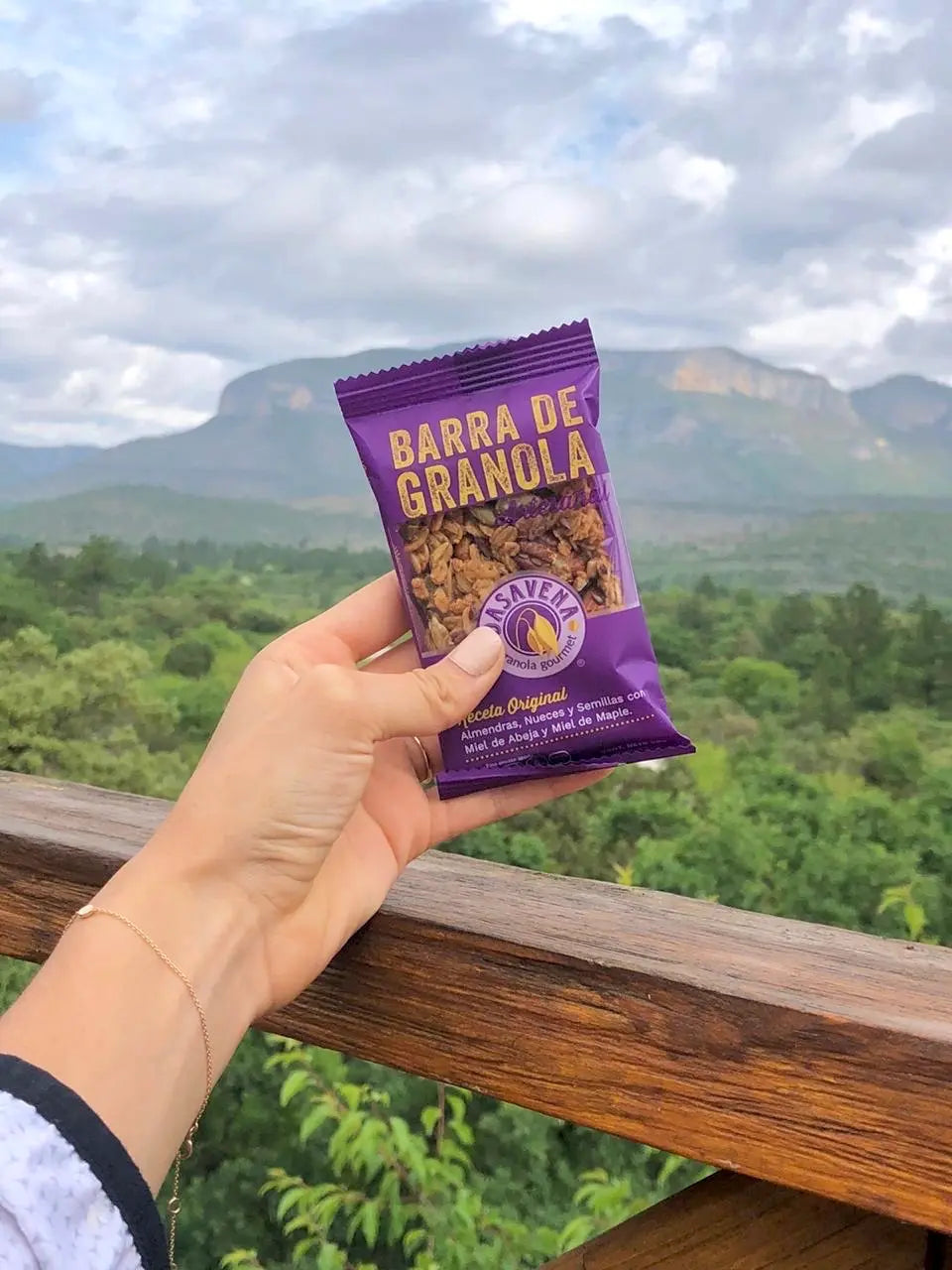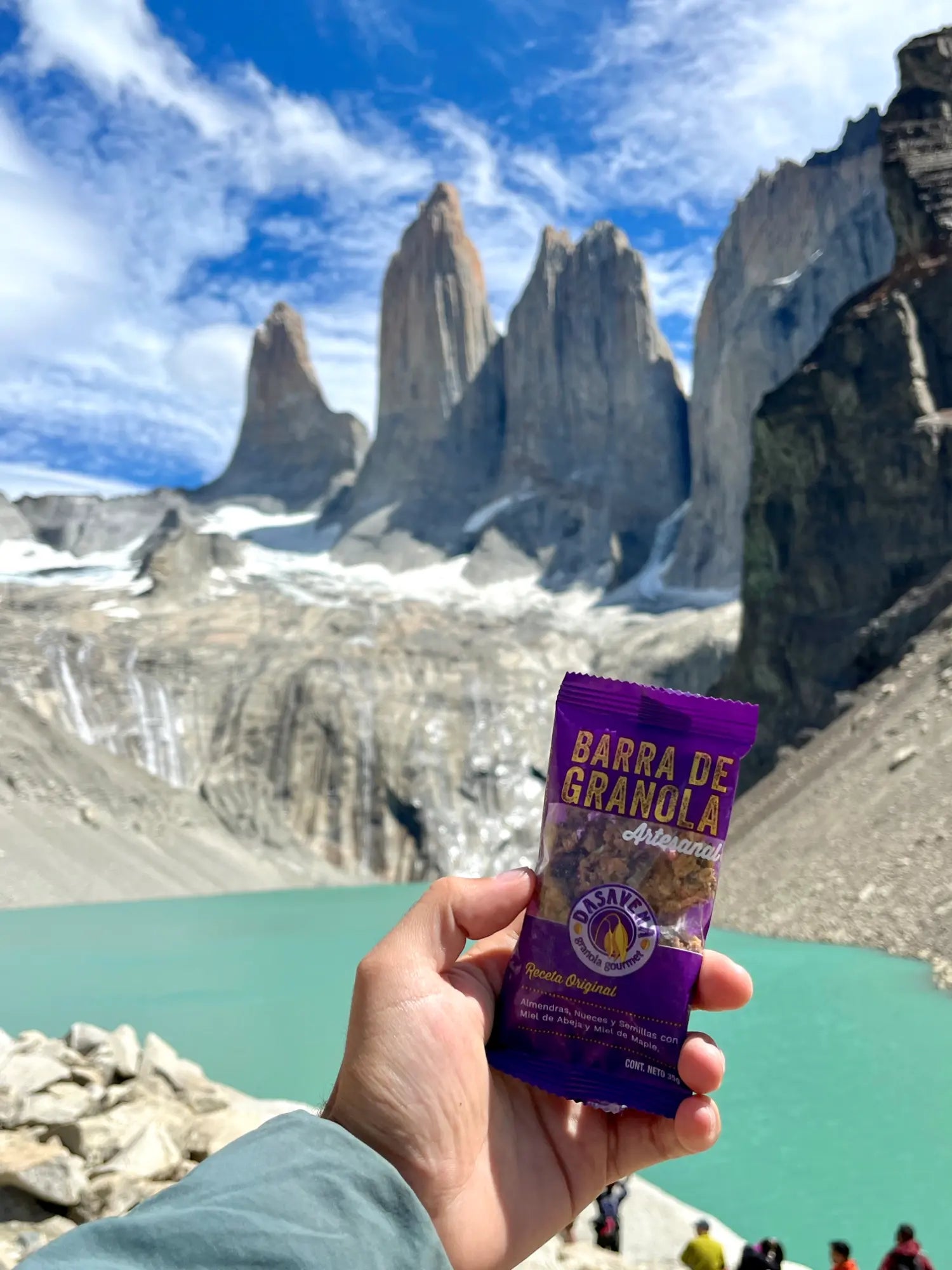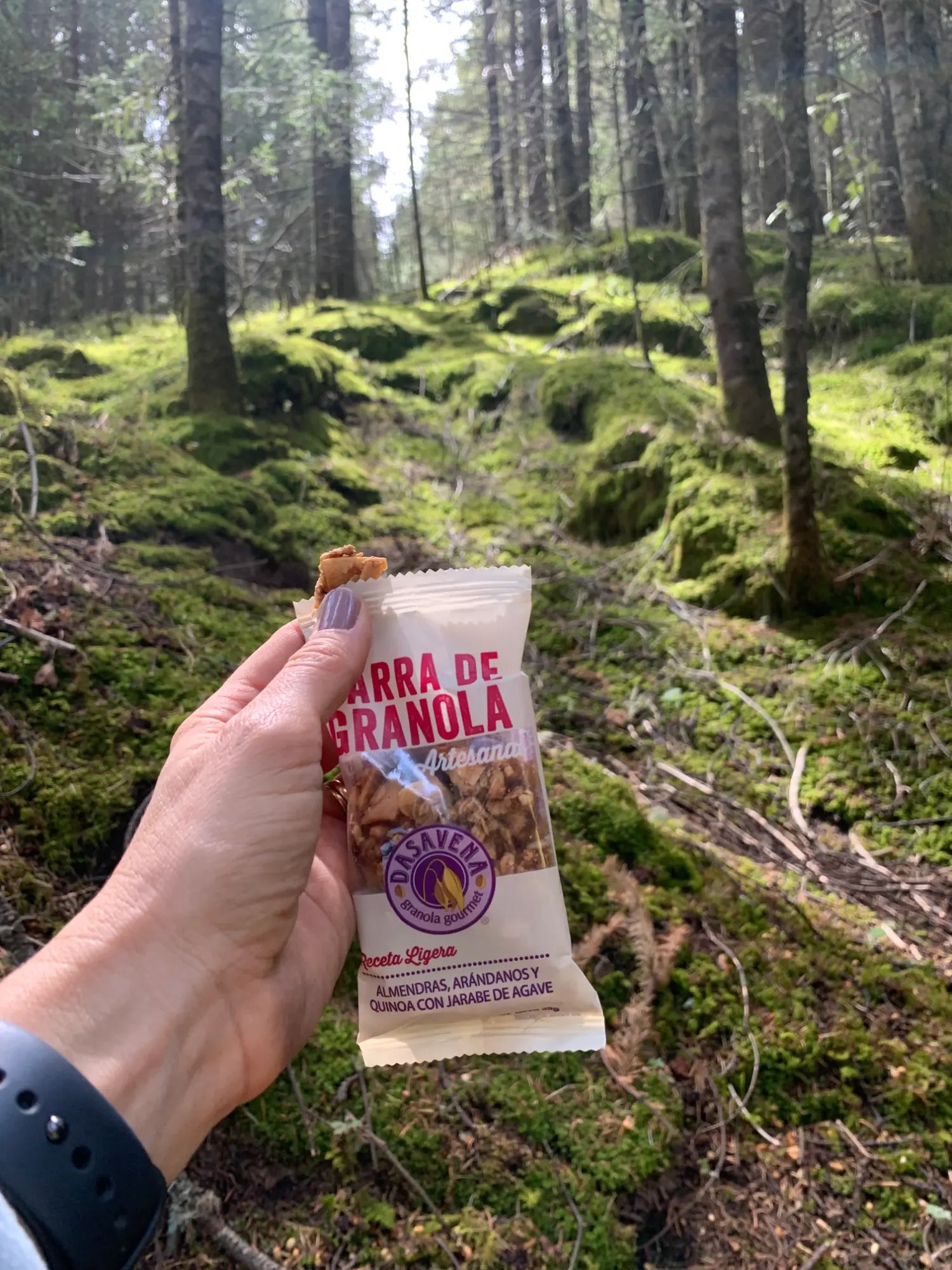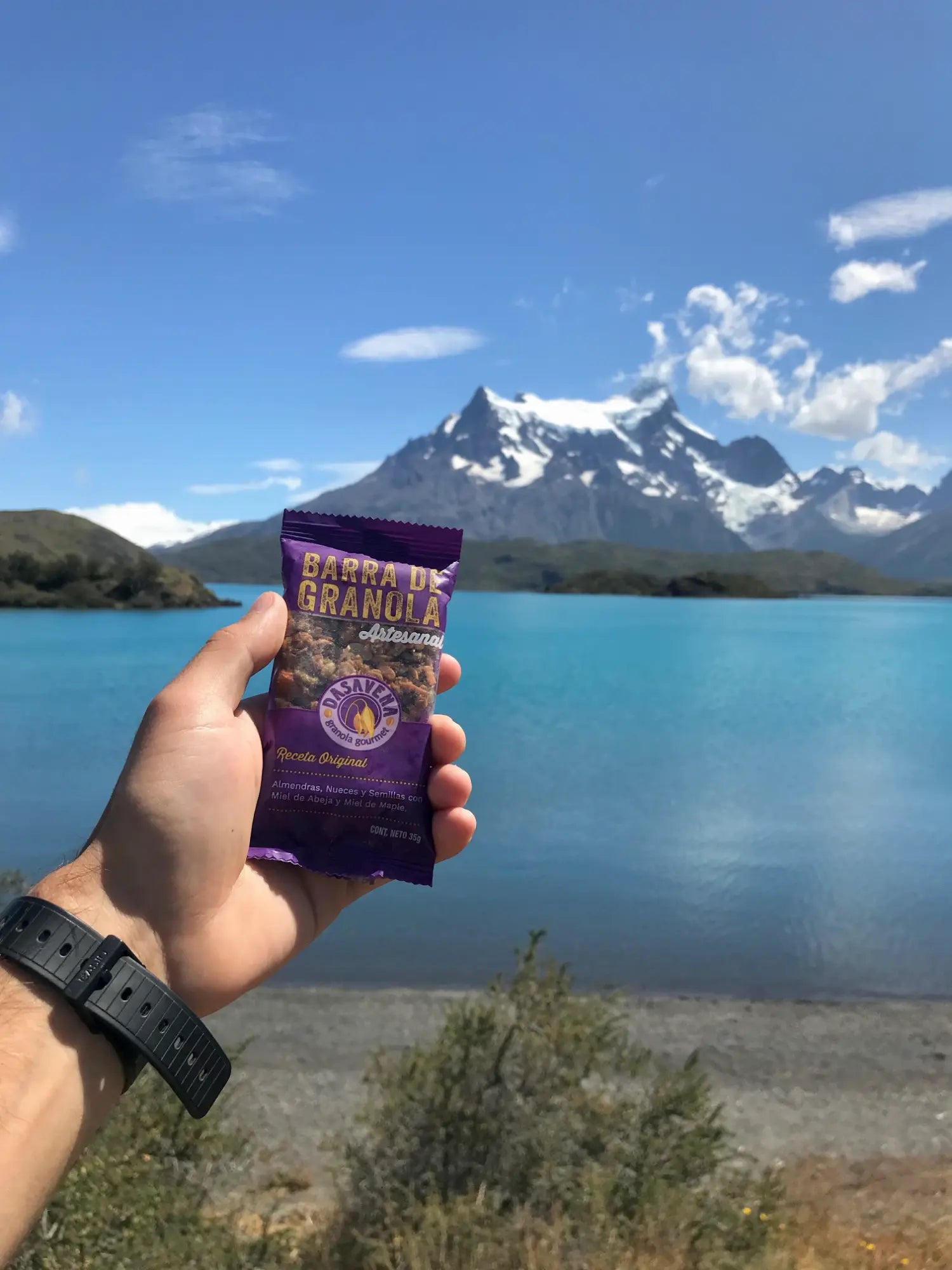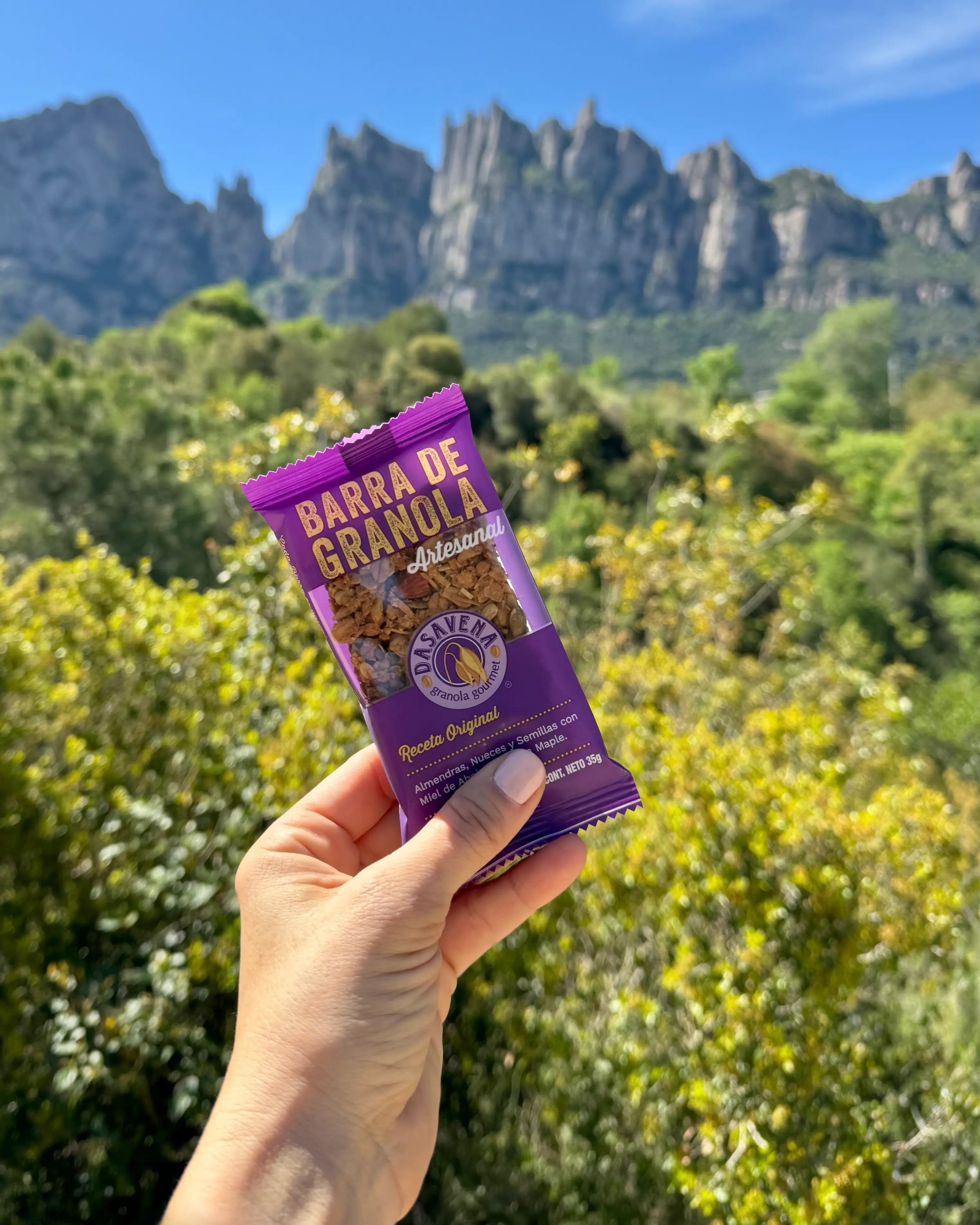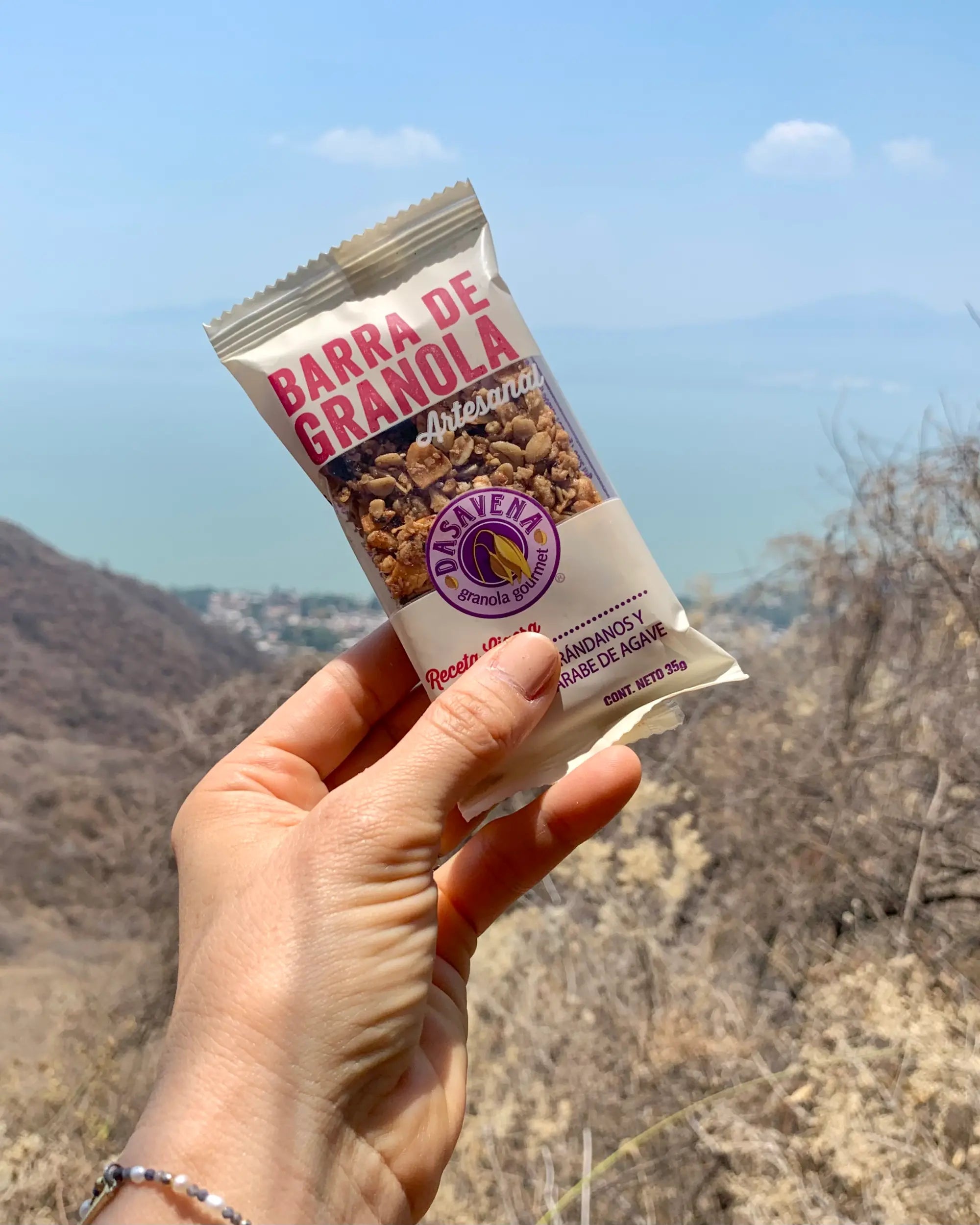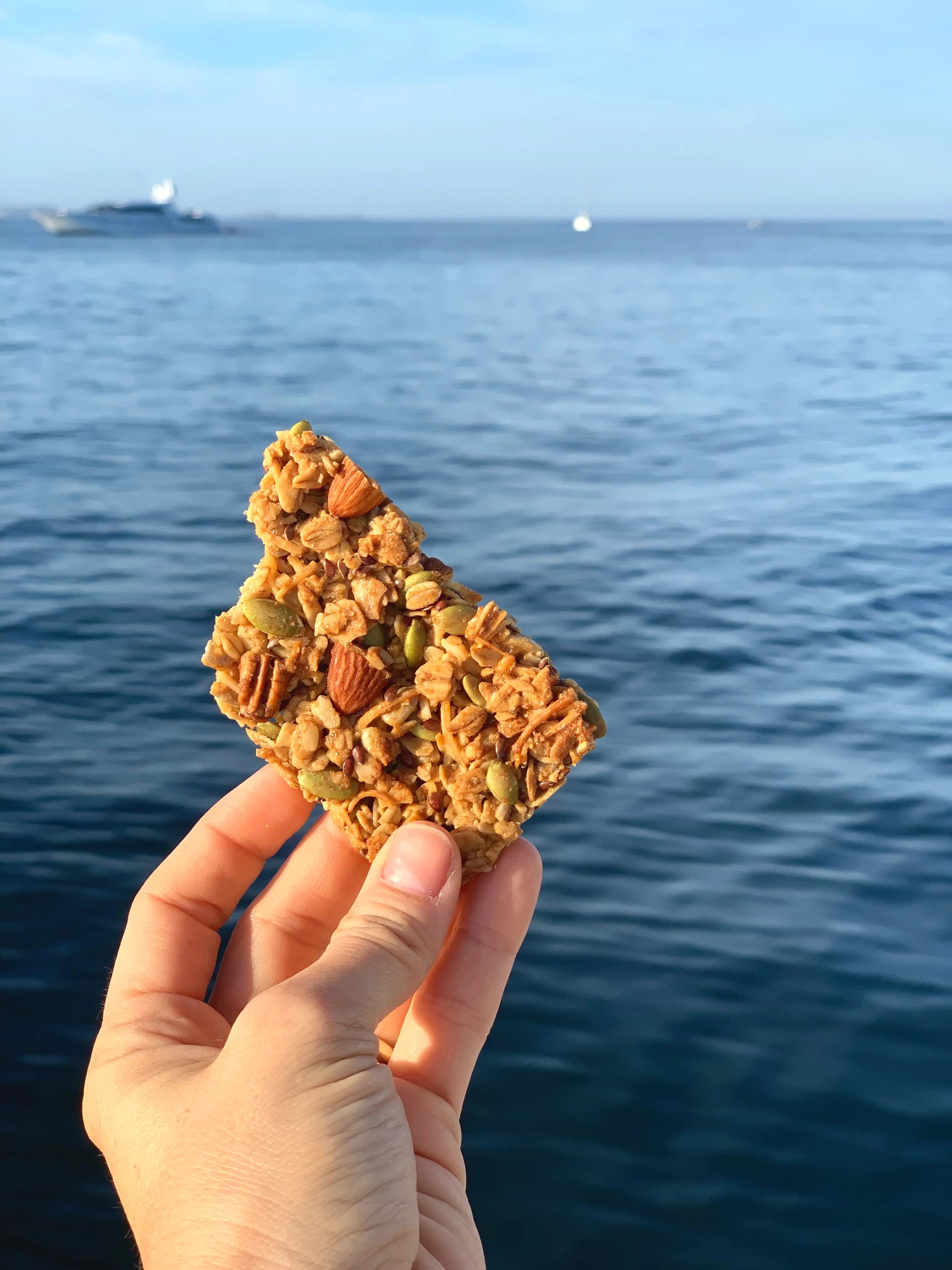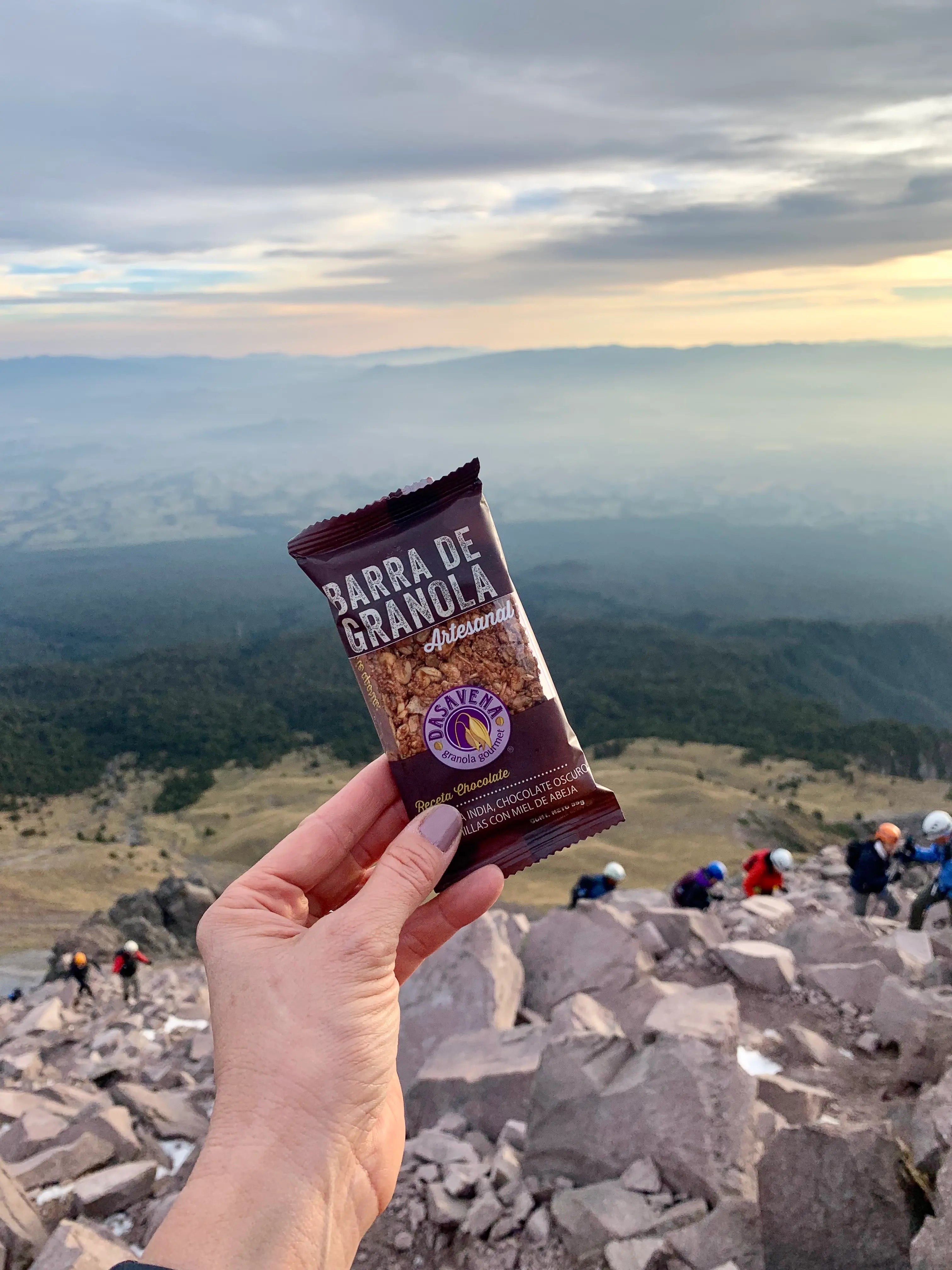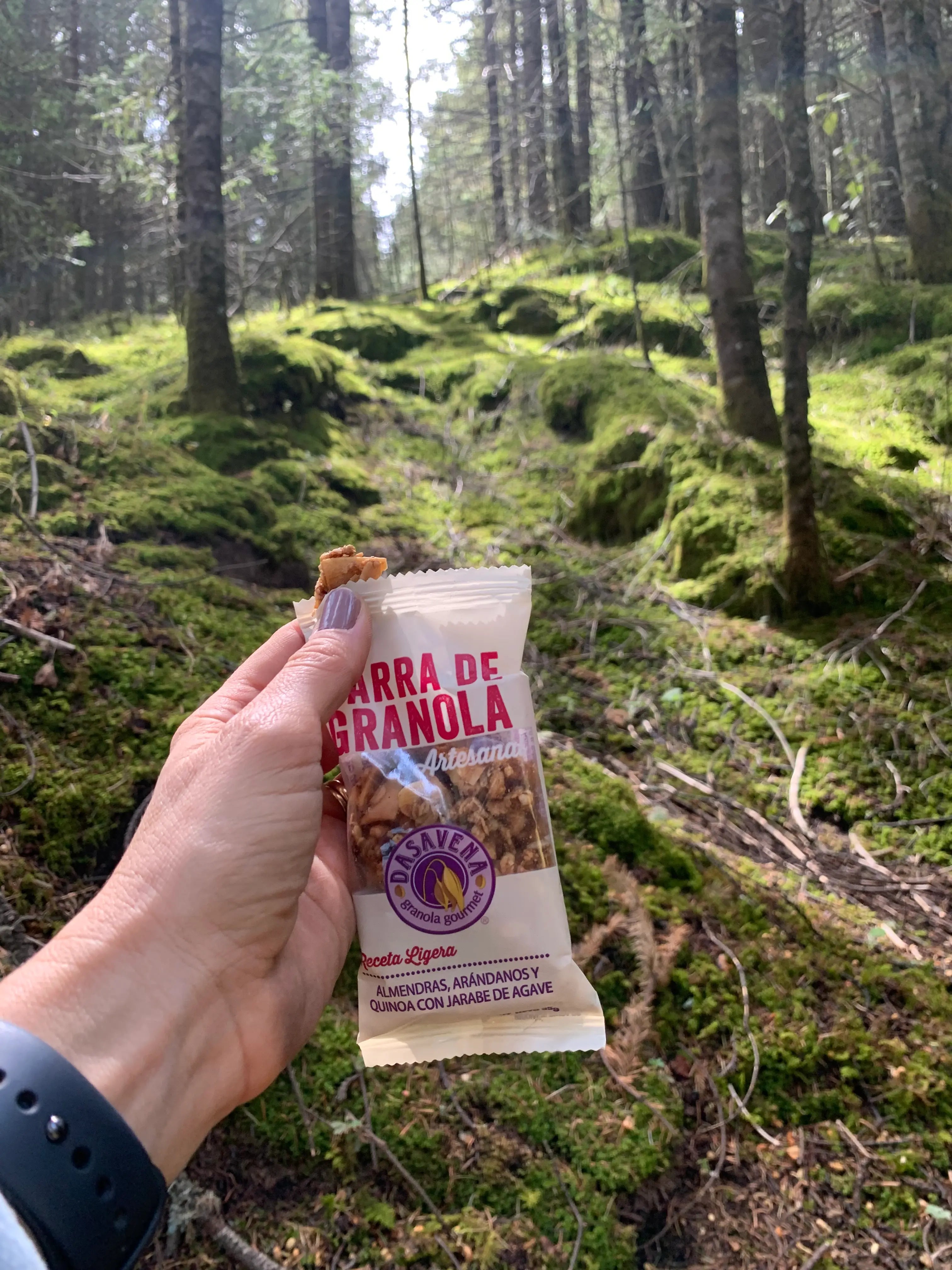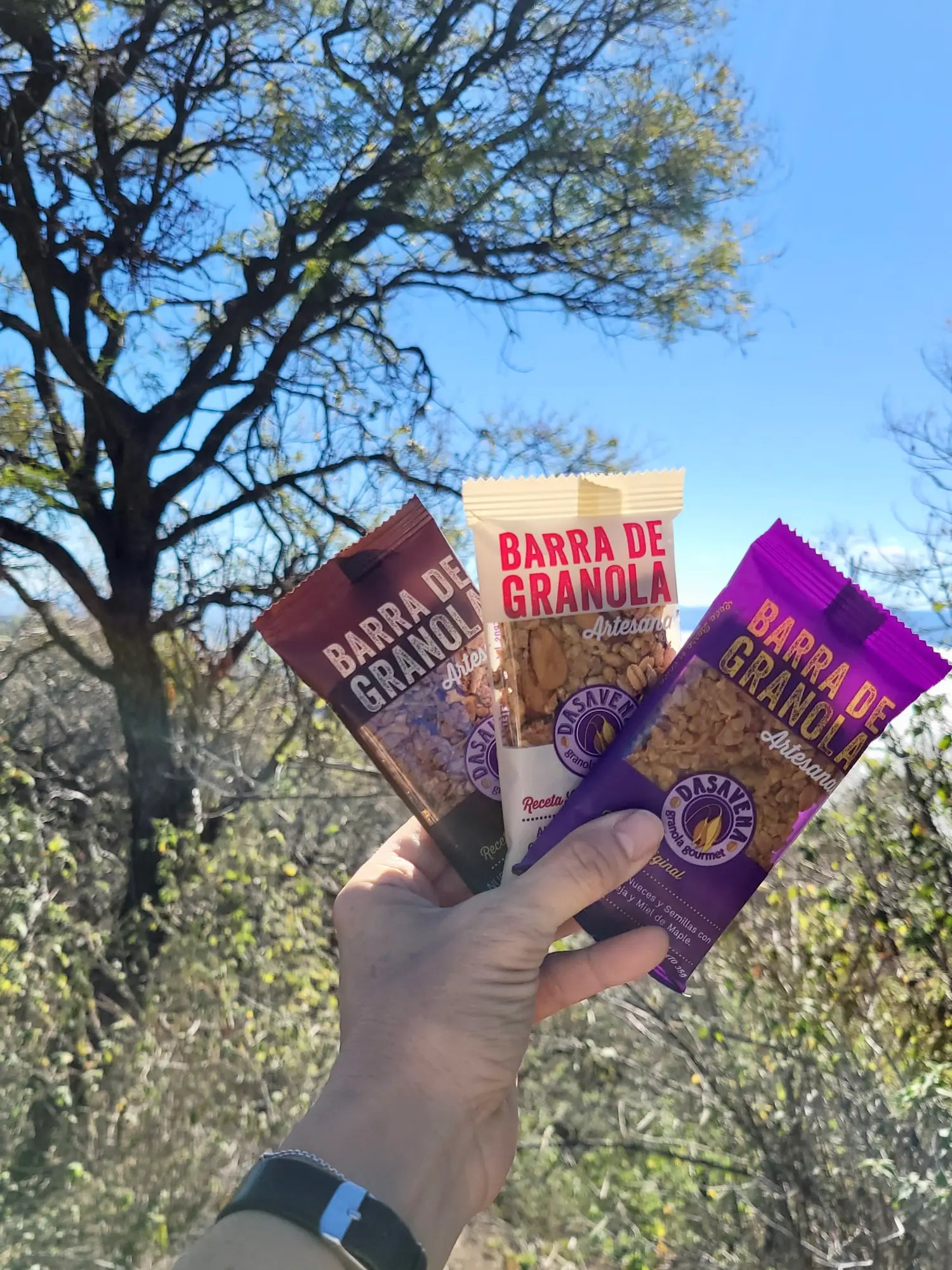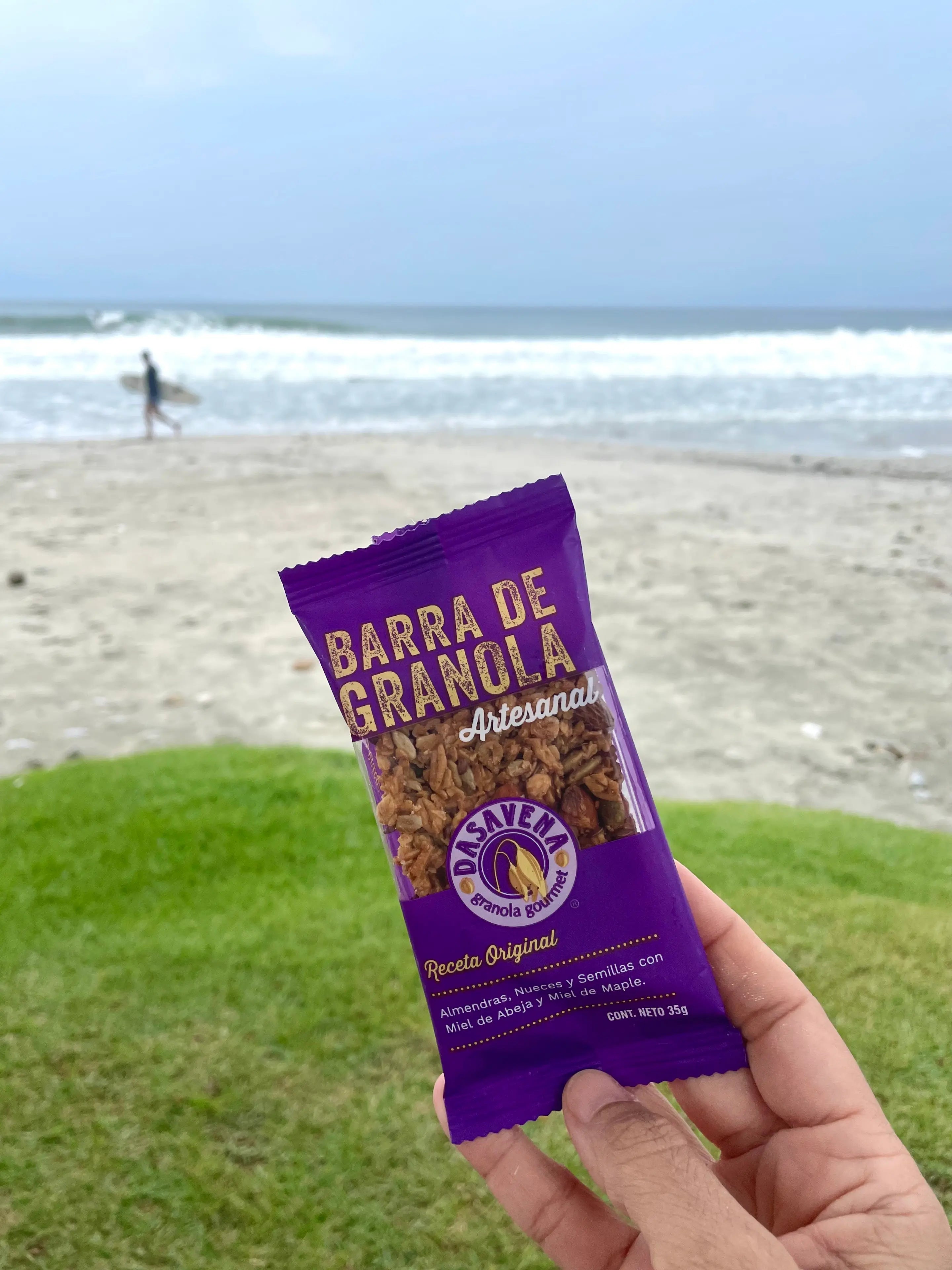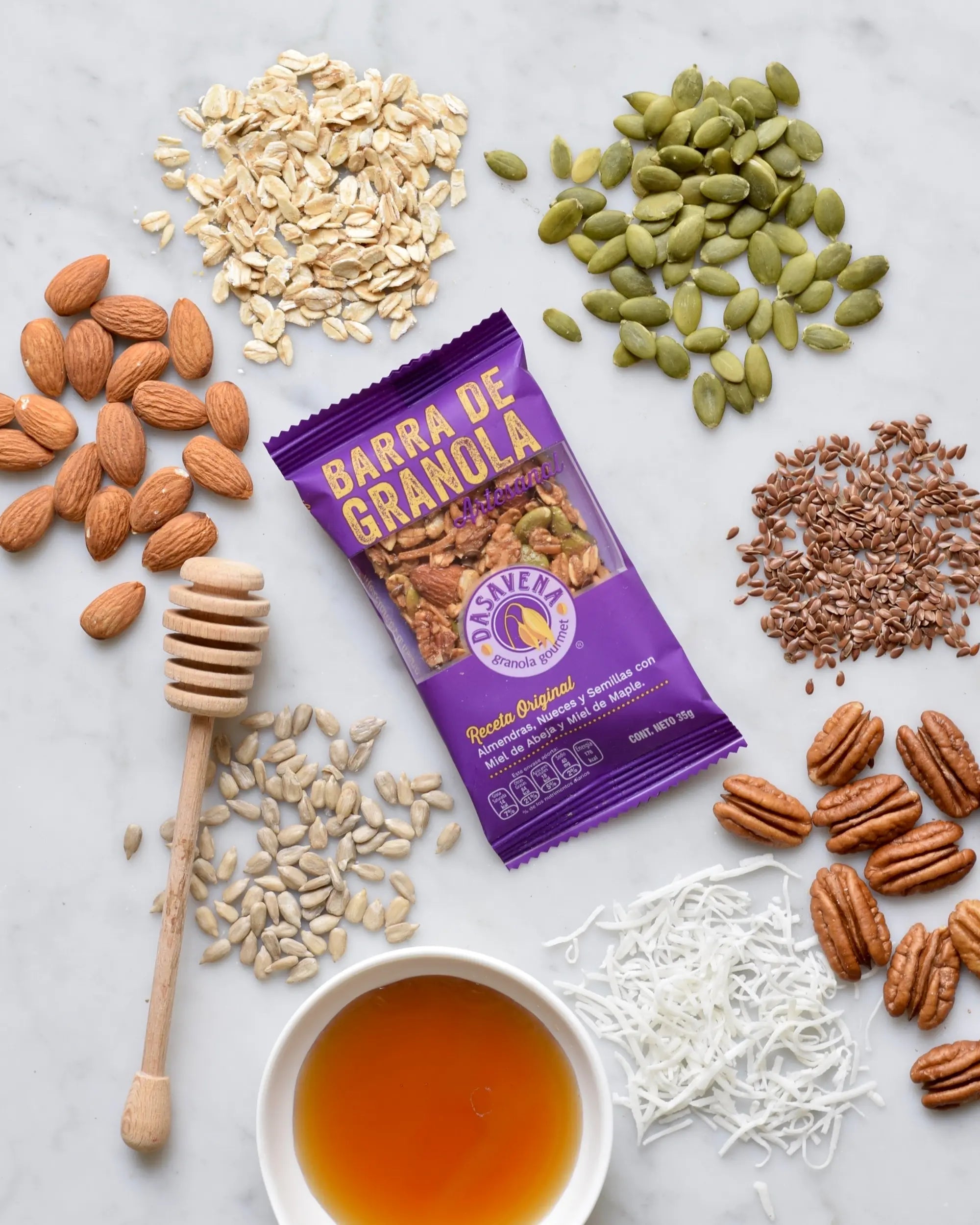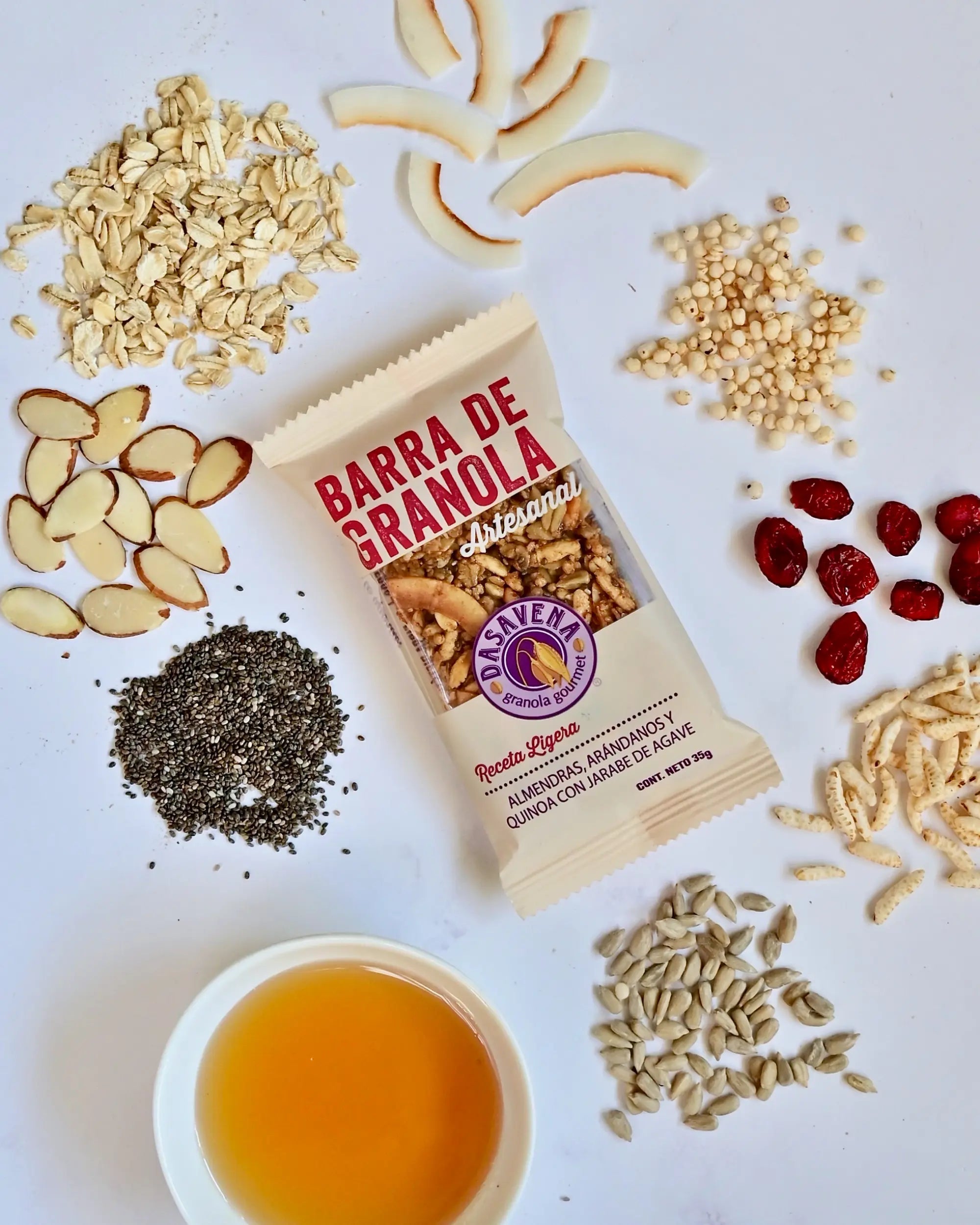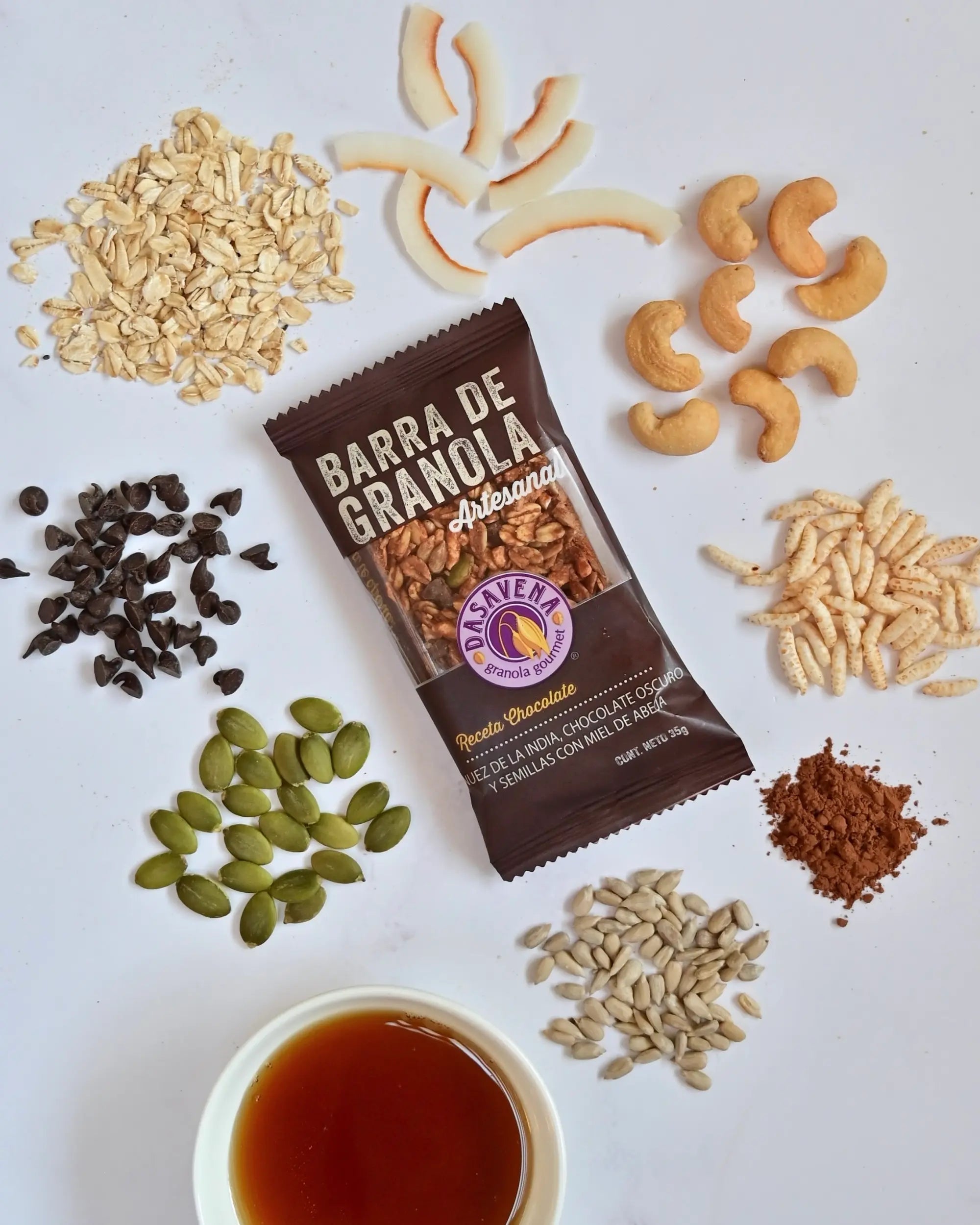Vive al aire libre
En Dasavena creemos en el poder de estar en contacto con la naturaleza y soñamos con que llegue el fin de semana para salir a explorar. Creamos estas barras únicas, crujientes y saludables para que las lleves a tu siguiente aventura y te llenen de energía.
Esperamos que las disfrutes y que nos compartas tus fotos para compartirlas en nuestra galería y así crear una comunidad de personas que disfrutan sus barras al aire libre.
Hiking
Ciclismo
Camping
Gym
Natación
Running
Hiking
Ciclismo
Camping
Gym
Natación
Running
Hiking
Ciclismo
Camping
Gym
Natación
Running
Hiking
Ciclismo
Camping
Gym
Natación
Running
Hiking
Ciclismo
Camping
Gym
Natación
Running
Hiking
Ciclismo
Camping
Gym
Natación
Running
¡Crujientes y deliciosas!
- Creadas artesanalmente a base de avena, almendras, nueces pecanas, semillas de calabaza, semillas de girasol y coco para después hornearse lentamente con miel de abeja y miel de maple pura.
- Ingredientes reales, simples y nutritivos.
- Sin jarabes ni azúcares refinados.
- Sin trigo / Sin conservadores artificiales.
- Ingredientes reales, simples y nutritivos.
- Snack saludable y bajo en azúcares.
- Excelente fuente de fibra, proteína y Omega 3.
¡Crujientes y deliciosas!
- Creadas artesanalmente a base de avena, almendras, nueces pecanas, semillas de calabaza, semillas de girasol y coco para después hornearse lentamente con miel de abeja y miel de maple pura.
- Ingredientes reales, simples y nutritivos.
- Sin jarabes ni azúcares refinados.
- Sin trigo / Sin conservadores artificiales.
- Ingredientes reales, simples y nutritivos.
- Snack saludable y bajo en azúcares.
- Excelente fuente de fibra, proteína y Omega 3.
¡Crujientes y deliciosas!
- Creadas artesanalmente a base de avena, almendras, nueces pecanas, semillas de calabaza, semillas de girasol y coco para después hornearse lentamente con miel de abeja y miel de maple pura.
- Ingredientes reales, simples y nutritivos.
- Sin jarabes ni azúcares refinados.
- Sin trigo / Sin conservadores artificiales.
- Ingredientes reales, simples y nutritivos.
- Snack saludable y bajo en azúcares.
- Excelente fuente de fibra, proteína y Omega 3.


